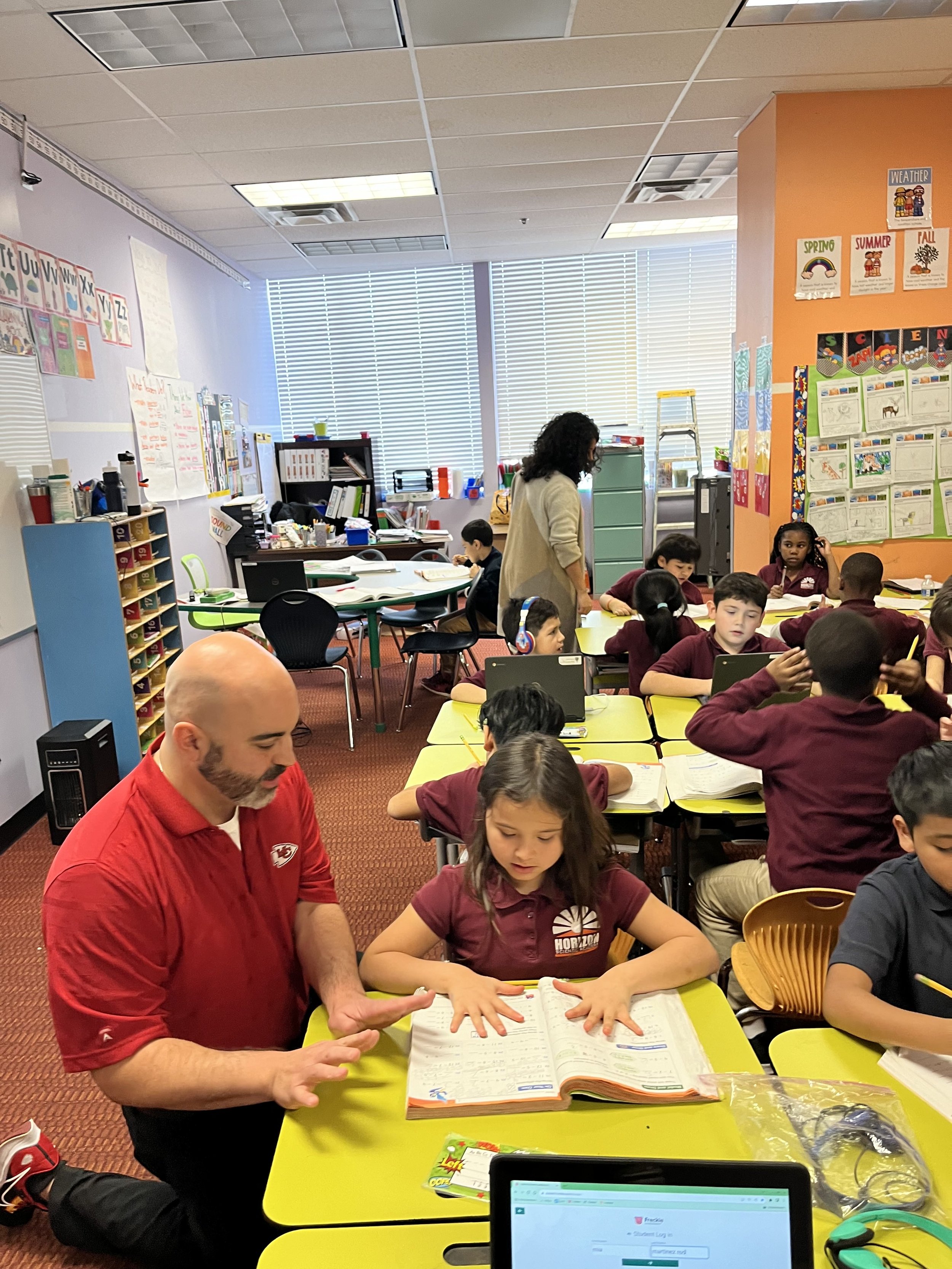School partnerships are integral to improving student outcomes
Teach For America is a key leadership and talent pipeline for our region’s pre-K-12 education system and we focus specifically on addressing educational inequity. We accomplish this, in part, by finding, selecting, and recruiting talented individuals who commit to teaching in low-income communities of color to close gaps in opportunity.
We are always working on deepening and expanding partnerships with schools in pursuit of measurable student impact, which is why our partnerships with the schools and school leaders where we place our corps members are integral to improving student outcomes. We spoke with Dr. Stephen Palmerin, Principal at TFA partner school Horizon Science Academy Southwest Chicago about how he empowers his teachers and students to thrive.
We know school systems across the country continually struggle to recruit and retain teachers, impacting students’ abilities to learn and attain the education they need to thrive. What do you think are some solutions to this issue and how do you address it in your school?
Teacher retention is a huge focus of ours. We want our school to be a desirable place to work, grow, and thrive in. We want our teachers to know how important they are and how incredibly valued they are. While everything we do has the students' best interest at hand, keeping teacher satisfaction at the forefront of much of our decision making helps sustain the incredible work environment that we strive for. We also invest in our teachers when it comes to professional development and paying for their graduate studies. Creating a work environment that our teachers want to be a part of helps with the teacher recruiting process. I frequently receive resumes from individuals who were referred to us by one of our current staff members. So valuing and investing in our teachers is our primary effort in keeping our high quality staff. Competitive pay and performance bonuses help out a lot too!
While TFA provides its school partners with a national recruiting opportunity to fill its classrooms with promising young teachers, our school partners provide TFA corps members with a positive experience that allows them to flourish. What are some ways your school empowers early career educators to be responsive to community needs and generate positive student impact?
Our school is big on community partnerships and parental involvement. We want our relationship with our school community to extend beyond the 8am-3pm school day. One of the most impactful programs that we have at our school is our CYSP (Concept Young Scholars Program). This program allows our teachers to serve in a mentoring capacity to a group of students. This program allows them to engage in a variety of activities related to personal/character development, community service, physical fitness, and a variety of educational and cultural adventures. Many of our students and mentors even go on an international trip over the summer. Last year, we sent a group of students and their mentors to Costa Rica. This summer, they will be going to Peru. Our early career educators are encouraged to participate in programs such as CYSP. These programs allow our teachers to build incredible relationships with our students and their families while engaging in memorable experiences and service projects that directly impact the immediate community in which they work.
What does mutual support look like to you? How do you see TFA corps members and your students growing and prospering in unison?
The triangulation between the coaching of our TFA corps members is the epitome of mutual support. Our TFA corps members receive coaching not only from TFA, but from our building leadership and our network's regional instructional coaches. However, this coaching doesn't occur in silos. There is regular communication, collaboration, and calibration between all the individuals that are working to support our TFA corps members. This alignment in our collective efforts not only ensures that the corps members receive more than adequate support, but ensures that the messaging from the different coaches is in alignment with best practices that support the overall school's goals. Such alignment from the consistent coaching supports the teacher in a manner that will inevitably result in profound student outcomes.


